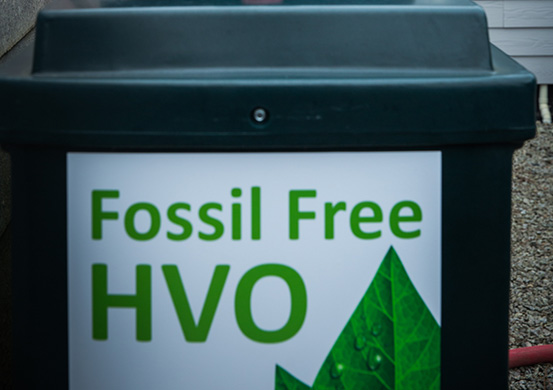UKIFDA and OFTEC, the trade associations behind the Future Ready Fuel campaign, are celebrating the one-year anniversary of the first ever property in the UK to be converted from oil heating to the renewable liquid fuel, Hydrotreated Vegetable Oil (HVO).
This milestone brings the possibility of a low carbon alternative to heating oil an important step closer because it shows that HVO is a reliable fuel for regular daily use in a typical home.
On 26th November 2020, a bungalow in the small village of Scorrier, near Redruth in Cornwall, was converted. The property previously relied on oil for heating. In order to switch the property to the new HVO supply, Mitchell & Webber, the local fuel distributor, removed the fossil heating oil from the oil tank and installed a HVO compatible nozzle with some pump pressure adjustments to the oil boiler. The process took less than an hour and around £500 in cost to change.
An average UK oil heated home produces 5.3 metric tonnes of carbon per year. With HVO offering a saving of 88%, this means Zoe has saved 4.7 tonnes in the first year – equivalent to driving 17,500 miles in an average car.
You can watch the installation process here.
In late October 2021, UKIFDA and OFTEC launched the next phase of the renewable liquid fuel demonstration project. The second phase will broaden the geographic spread and will also, for the first time, allow the industry to test the logistics of what could be a bigger transition to renewable liquid fuels over the coming years for the estimated 1.7 million UK properties using oil for heating.
Good progress has been made by the 15 fuel distributors involved in the project and the many dedicated heating technicians.
Nearly all the homes have now been identified and are in the process of being surveyed for compatibility. The expectation is that the vast majority of homes will be converted before Christmas.
Together, these 200 homes, which are located across the country from Scotland, to Wales and England, will save nearly 1,000 tonnes of carbon emissions per year of operation with less than one hour of work, zero disruption to the consumer and minimal upfront cost.



